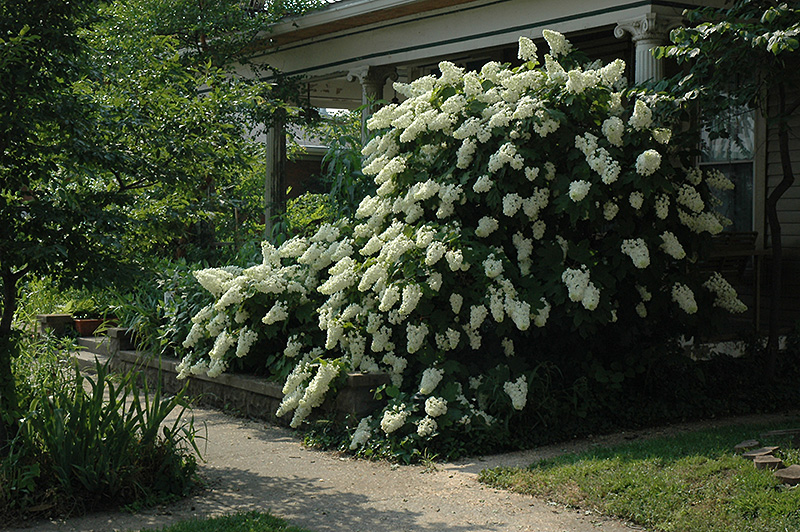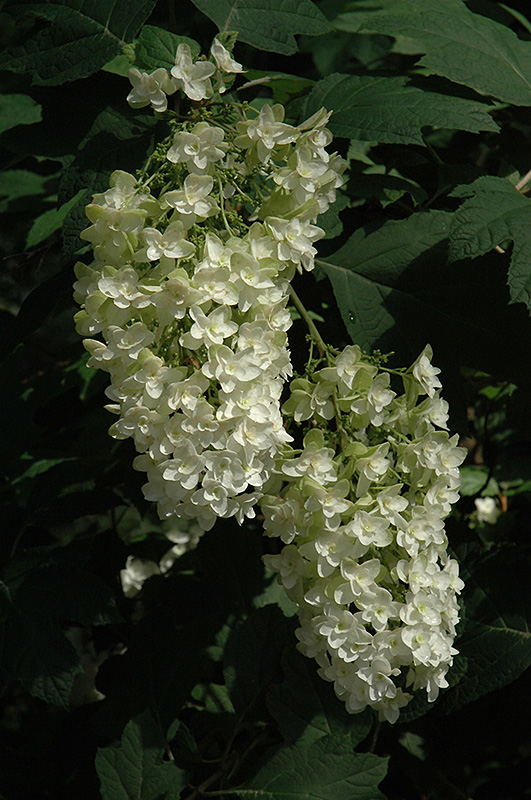>> Home
Snowflake Hydrangea
Hydrangea quercifolia 'Snowflake'
Height: 6 feet
Spread: 6 feet
Sunlight:
![]()
![]()
![]()
Hardiness Zone: 4
Other Names: Oak Leaf Hydrangea
Description:
A vastly improved compact form of oakleaf hydrangea that features unique double florets on the sterile flowers, resulting in denser flower heads that bloom over a longer period of time; conical white flower clusters age to pink, dazzling red fall colors
Ornamental Features
Snowflake Hydrangea features bold fragrant conical double white flowers with pink overtones at the ends of the branches from early to late summer. The flowers are excellent for cutting. It has emerald green deciduous foliage. The large fuzzy lobed leaves turn an outstanding burgundy in the fall. The peeling brick red bark adds an interesting dimension to the landscape.
Landscape Attributes
Snowflake Hydrangea is a multi-stemmed deciduous shrub with a more or less rounded form. Its relatively coarse texture can be used to stand it apart from other landscape plants with finer foliage.
This is a relatively low maintenance shrub, and is best pruned in late winter once the threat of extreme cold has passed. It has no significant negative characteristics.
Snowflake Hydrangea is recommended for the following landscape applications;
- Accent
- Mass Planting
- General Garden Use
Planting & Growing
Snowflake Hydrangea will grow to be about 6 feet tall at maturity, with a spread of 6 feet. It tends to fill out right to the ground and therefore doesn't necessarily require facer plants in front, and is suitable for planting under power lines. It grows at a slow rate, and under ideal conditions can be expected to live for approximately 30 years.
This shrub performs well in both full sun and full shade. It prefers to grow in average to moist conditions, and shouldn't be allowed to dry out. It may require supplemental watering during periods of drought or extended heat. It is not particular as to soil type or pH. It is somewhat tolerant of urban pollution, and will benefit from being planted in a relatively sheltered location. Consider applying a thick mulch around the root zone in winter to protect it in exposed locations or colder microclimates. This is a selection of a native North American species.


